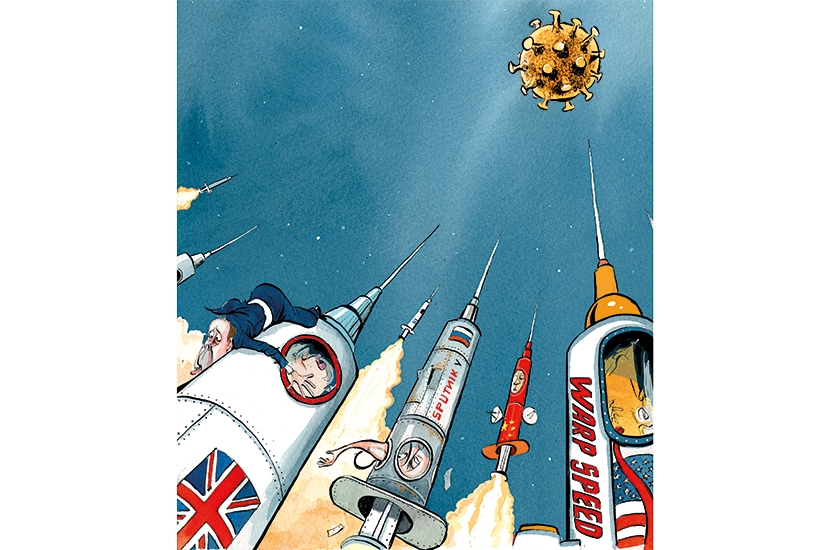It could be the most audacious piece of political theatre of modern times. At the end of next month, just a week or so before Americans choose their next president, we could see Donald Trump standing on the White House lawn in front of a handful of friendly journalists, rolling up his sleeve and looking solemnly into the camera with hardly a wince as a nurse expertly administers America’s newly licensed coronavirus vaccine. ‘We did it,’ he will announce, adding that the biggest mass vaccination programme in history is ready to roll out. ‘An American vaccine that has made America great again.’
Far-fetched? Ridiculous? Perhaps not. Even though trials of Britain’s Oxford vaccine were paused this week, others remain on track. Trump dropped the broadest possible hint about his thinking when he said on Monday: ‘We’ll have the vaccine soon, maybe before a special date. You know what date I’m talking about.’ If he rushes through a shot for election day he will be far from alone in twisting immunology in pursuit of ideology. Vladimir Putin has already been given Russia’s vaccine (called Sputnik V) and has even tried it out on one of his daughters. The Chinese this week prominently displayed their two lead vaccines at the Beijing trade fair. Meanwhile, the British may have stumbled, but the French and the Germans are scrambling to get their shots to the front of the queue. The race for a vaccine to combat Covid-19 may have started as serious scientific endeavour, but it has begun to mutate — a little like viruses themselves sometimes do — into something else: a deadly game of geopolitics, pitting nation against nation. Like a medical version of the Space Race, it has become a battle of prestige, to see which country is the cleverest and which nation can have the rest of the world taking its jabs.







Comments
Join the debate for just £1 a month
Be part of the conversation with other Spectator readers by getting your first three months for £3.
UNLOCK ACCESS Just £1 a monthAlready a subscriber? Log in